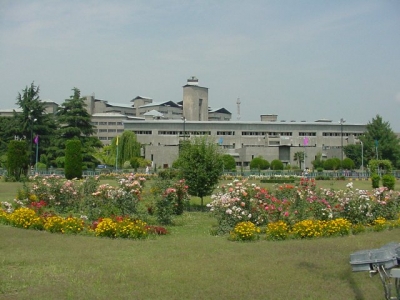S. Rehman
The decisive strength of regional parties as, without a shred of doubt, could be deciphered from the recent poll events and their obvious eventual dominance at the national level is all set to flip a serious paradigm shift in Indian politics. The frailty of any strong political national party despite ancestral image of some or the religious racked up backgrounds of others or the glorious waves of Indian National movement of past to erect the fragile crutches of some parties, has failed to evolve and maintain the systematic cohesiveness of the divergent regional units. The federal structure which the National parties, all along, have tried to mask under their ‘egos’ has slowly sneaked out of the carpet and over the years given birth to coalitions. The emergence of NDAs and UPAs is just the outcome of the diversity of India which the bigger National Parties underestimated along their egotistical political sojourn.
One should not blame a person or the other for any kind of political debacle. Fallacies of individual persons cannot impair the prospects of the party of gigantic size with high profile elements to plug the leaks. It is improper planning, lack of vision, deficient realization of local pulse, snobbish responses to the actual demands and expectations of citizenry and, above all, the factor of arrogance which cannot be swept away without due importance. When issues like corruption, price rise, inflation, subsidies, too many leaders and leaders fighting among themselves besides the small issues of local importance are shrugged without a blink of an eye, the tempest of obvious sorts is unmistakably underscored. The regional parties ideally operating within a limited geographical area and pursuing the interests of people within that area have, in this scenario, tendered to embark bigger roles outside their domains by using the numbers that run the democracy in the parliament. And this role cannot be rated low in context of the viscous political influences they garner.
The political canopy of Jammu & Kashmir too has witnessed, in the recent past, the beleaguered upheaval over the issues of nepotism and corruption. The politicians of the bigger national parties being patronized by the arrogant nods of the high command without even uttering a word to the electorate to whom they ought to be answerable is a typical example of ‘taking the local population for a ride’ and ‘putting the issues of local importance to back burner’. Likewise, the ‘internal squabbles’ between members of the same party and ‘washing the linen in public’, again, is a perfect example of the case of “having too many leaders”, with divergent interests against the common party interest.
The mutual antagonism within the members of the same group is destined to create the ripples to fracture the basic structure of the group especially when the binding force, ‘the group leader’, is unresponsive and indifferent to the issues that create the split. Undoubtedly, the benefit of such slip-ups on part of those sitting in Delhi and gauging the pulse of electorate through binoculars is going to benefit the regional parties but for these parties to have the unity of thought and clarity of vision.















